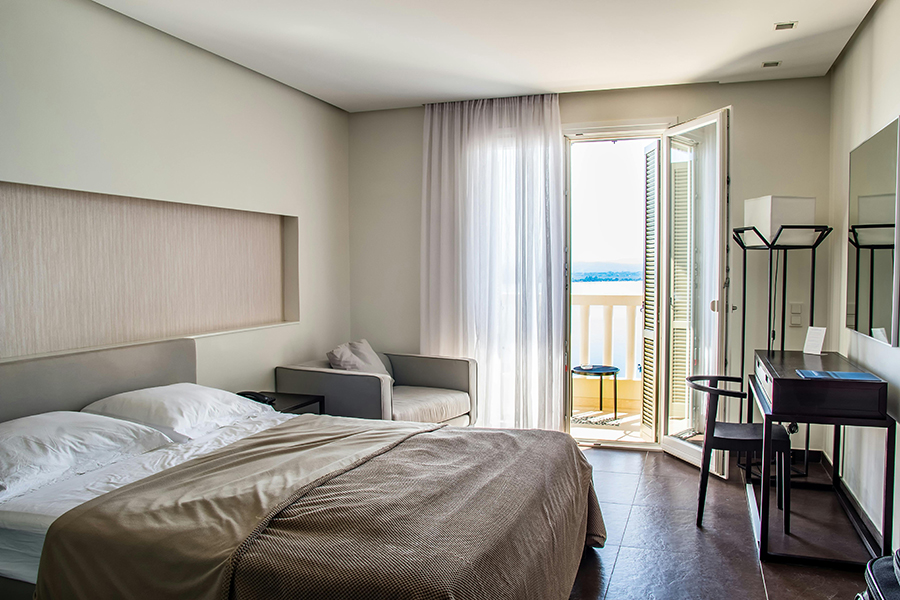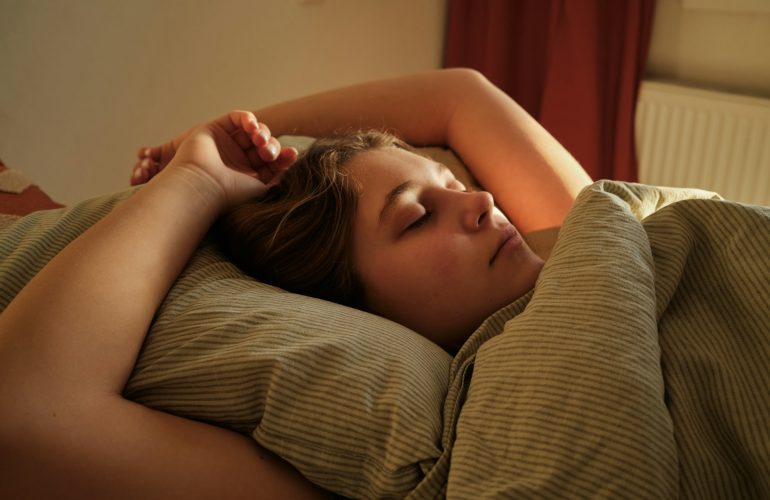Sleep is one of the most vital components of our overall health, influencing everything from cognitive function to emotional well-being and physical health. At Sweet Sleep Studio, we often see how people struggle to achieve the quality of sleep they need for optimal performance and health, largely due to poor bedroom setups and inadequate sleep routines. Crafting a sleep-conducive environment, along with a consistent routine, can significantly improve the quality of your rest.
In this article, we’ll explore how to optimize both your bedroom setup and sleep routine to promote better, deeper, and more restful sleep.
The Ideal Bedroom Environment
Creating a sleep-friendly bedroom environment is foundational for getting quality sleep. Our brains are sensitive to environmental cues that signal when it’s time to wind down and prepare for rest. Here’s how to set up your bedroom for optimal sleep:
Keep the Room Cool
The temperature of your room plays a crucial role in regulating your body’s core temperature, which naturally drops as you fall asleep. Keeping your bedroom slightly cool encourages your body to maintain that lower core temperature, promoting sleep.
Ideal Temperature: Research suggests that the optimal sleep temperature is between 60-67°F (15-19°C). Anything too warm or too cold can disrupt your sleep cycle, particularly deep REM sleep.
Actionable Tip: Use a fan, open a window, or adjust your thermostat to maintain the recommended sleep temperature. Lightweight, breathable bedding materials like cotton can also help regulate your body temperature throughout the night.
Make Your Bedroom Dark
Your circadian rhythm, or internal body clock, is highly influenced by light. Darkness signals to your brain that it’s time to produce melatonin, the sleep hormone that helps you drift into sleep.
Light-Blocking Solutions:
– Invest in blackout curtains or blinds to prevent outdoor light from entering.
– Use dimmable bedside lamps with warm light tones to create a soothing atmosphere as you wind down.
– Remove any electronic devices that emit blue light, such as phones, tablets, or TVs, as they can interfere with melatonin production
Actionable Tip: If blackout curtains are not an option, consider a sleep mask. It’s a simple yet effective way to block out light during the night.
Minimize Noise
Noise disturbances can prevent you from falling asleep or cause you to wake up throughout the night, disrupting your sleep cycle. While some people are naturally less sensitive to noise, ensuring your environment is as quiet as possible can improve sleep quality.
Sound Solutions:
– Use earplugs or a white noise machine if you live in a noisy area or have inconsistent ambient noise.
– Soothing sounds, such as nature noises or gentle rain, can help mask disruptive sounds and create a more relaxing environment.
Actionable Tip: Some individuals benefit from white noise apps or machines that produce consistent background sounds, which mask sudden noises that may interrupt sleep.
Invest in a High-Quality Mattress and Pillows
The comfort of your bed directly impacts the quality of your sleep. An uncomfortable mattress or unsupportive pillow can lead to tossing, turning, and waking up with aches or stiffness.
Mattress Considerations:
– Choose a mattress that supports your body and suits your preferred sleeping position. For instance, side sleepers often benefit from softer mattresses that cushion the shoulders and hips, while back sleepers may prefer firmer support.
– Replace your mattress every 7-10 years or when it starts to sag or lose support.
Pillow Considerations:
– The right pillow is essential for spinal alignment. A pillow that’s too high or too low can strain the neck, leading to discomfort and disrupted sleep.
– Consider the material of your pillow (e.g., memory foam, latex, or down) and choose one that offers the right balance of softness and support for your sleeping position.
Actionable Tip: Evaluate your current sleep setup. If you wake up with back or neck pain, it might be time to replace your mattress or pillows. Be sure to choose a mattress and pillow combination that supports your spine’s natural curvature.
Crafting a Consistent Sleep Routin
Equally important to your sleep environment is your nightly sleep routine. A consistent, calming routine helps train your brain and body to recognize when it’s time to sleep, making it easier to fall asleep and stay asleep throughout the night.
Set a Regular Sleep Schedule
Your body thrives on consistency, and maintaining a regular sleep schedule is one of the most effective ways to improve sleep quality. Going to bed and waking up at the same time each day (even on weekends) helps regulate your circadian rhythm, making it easier to fall asleep and wake up naturally.
Actionable Tip: Set a regular bedtime and wake-up time that ensures you’re getting at least 7-9 hours of sleep. Stick to this schedule as closely as possible, even on weekends and holidays, to keep your body’s sleep-wake cycle consistent.
Create a Relaxing Bedtime Routine
Establishing a pre-sleep routine signals to your body that it’s time to wind down. This routine should be calming and free of stimulating activities that can interfere with sleep.
Relaxing Activities:
– Reading: A physical book (not an e-reader that emits blue light) can help relax your mind and ease you into sleep.
– Meditation or Breathing Exercises: Mindfulness practices like deep breathing or guided meditation can calm the nervous system and promote relaxation.
– Warm Bath: Taking a warm bath an hour or two before bed can relax muscles and help lower your core temperature, making it easier to fall asleep.
Actionable Tip: Develop a consistent 30- to 60-minute wind-down routine that includes some of these relaxing activities. Avoid activities like watching TV or working on your computer, as the blue light and mental stimulation can make it harder to fall asleep.
Limit Caffeine and Heavy Meals Before Bed
Stimulants like caffeine can disrupt your sleep cycle, especially if consumed too late in the day. Similarly, large meals right before bed can cause discomfort or indigestion, making it harder to fall asleep.
Caffeine and Meal Timing Tips:
– Avoid caffeine (from coffee, tea, or certain sodas) at least 6 hours before bedtime.
– Eat lighter dinners and avoid eating within two hours of going to bed.
– If you need a snack before bed, opt for something light and sleep-promoting, like a small handful of almonds or a banana.
Actionable Tip: Track your caffeine intake throughout the day. If you find yourself struggling to fall asleep, try cutting back on caffeine after lunchtime.
Manage Stress and Anxiety
Anxiety and stress are among the most common reasons people struggle to fall asleep. Chronic stress triggers the release of cortisol, which keeps your body in a state of heightened alertness, making it difficult to relax.
Stress-Relief Practices:
– Journaling: Write down any thoughts, worries, or to-do lists before bed to clear your mind and reduce anxiety.
– Progressive Muscle Relaxation: This technique involves tensing and then relaxing each muscle group, starting from your feet and working your way up. It helps to relieve physical tension and prepare your body for sleep.
Actionable Tip: If anxiety regularly interferes with your sleep, consider incorporating a mindfulness or relaxation technique into your nightly routine to help calm your mind.
Optimizing your bedroom setup and establishing a consistent sleep routine can significantly improve the quality and duration of your sleep. By creating a cool, dark, quiet, and comfortable sleep environment and following a soothing bedtime routine, you can help your body and mind transition into rest mode more effectively. This will lead to better sleep and, ultimately, better overall health and well-being.
Remember, sleep is not a luxury—it’s a necessity. Investing time and effort into creating the ideal conditions for sleep will pay off in countless ways, from improved energy levels to better mental and physical health.
If you’re looking for better nights rest, please call Sweet Sleep Studio at (913) 309-5963. We are sleep experts and can help you achieve optimal rest!




